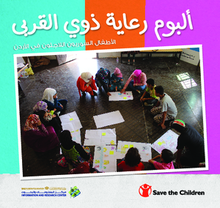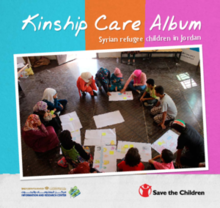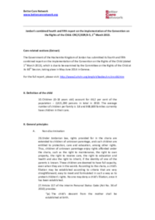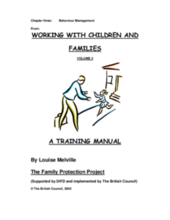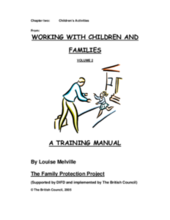childrens_living_arrangement
children_living_without_bio
Displaying 31 - 40 of 42
This Album on Kinship Care is a compilation of the works of Syrian refugee children in kinship care and their adult caregivers who took part in the participatory action research undertaken by Save the Children and the Information and Research Center – King Hussein Foundation in Jordan in 2014 in the Zaatari Camp and in the city of Amman.
This Album on Kinship Care is a compilation of the works of Syrian refugee children in kinship care and their adult caregivers who took part in the participatory action research undertaken by Save the Children and the Information and Research Center – King Hussein Foundation in Jordan in 2014 in the Zaatari Camp and in the city of Amman.
This online resource, complete with videos and infographics, accompanies a report from the UN High Commissioner for Refugees which details the experiences of Syrian refugee children and youth.
This report from the UN High Commissioner for Refugees details the experiences of Syrian refugee children and youth.
The Government of the Hashemite Kingdom of Jordan has submitted its fourth and fifth combined report on the implementation of the Convention on the Rights of the Child (dated 1st March 2013).
The purpose of this qualitative research was twofold: the first was to explore the phenomenon of homebound girls in Jordan and to understand the reasons that led to their confinement. By shedding light on and investigating this phenomenon, the second purpose of this research, in turn, was to identify possible interventions to allow these girls access to education and strengthen their social development.
This paper describes a study that assessed the attitudes of people in the Hashemite Kingdom of Jordan toward the implementation of foster care as an alternative to institutions for children.
The study explores the post-care experiences of young Jordanian care leavers. Material struggles were similar to peers internationally. The distinct difference for Arab care leavers was the cultural influence. Patriarchy, family life and collectivism impact the care leavers' experiences. A cultural dimension increases understanding of leaving-care.
Guidance for caregivers and residential staff in Jordan on how to assess behavior problems in children and to manage them positively.
Guidance and examples of group activities which promote development and self-esteem, and the role of the worker in providing activities on a regular basis.

